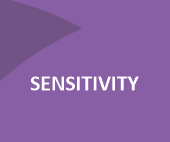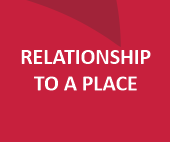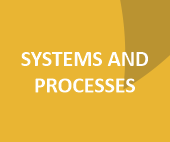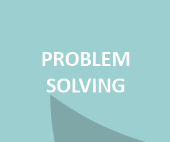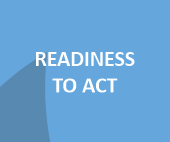DEFINITION OF THE COMPETENCE
The READINESS TO ACT area develops pupils‘ stances and skills connected to readiness to act to promote quality of life and improve the environment. The area is directly related to responsible behaviour towards nature and people. Development of this area is the proverbial icing on the cake of responsible behaviour. The afore mentioned knowledge and skills are pushed to a higher level – to active citizenship within the laws of a democratic society. Pupils can effectively utilize their rights and thus increase the possibilities to affect the conduct of themselves and others, both directly and indirectly, for example by creating a petition, writing to a relevant public servant, etc. This way, pupils can manage and affect more things and problems than as a responsible individual. The area does not spur pupils into civic disobedience.
HOW TO DEVELOP THE COMPETENCE
Aims from this area are best developed by solving real life social and environmental problems. Project learning based on group solving of specific problems which concern pupils directly and can be influenced by pupils are a suitable form. Success, even if just partial, is essential at the beginning reinforcing pupils’ conviction that they can improve the quality of life or the environment through particular activities. To develop Readiness to Act, participation method or various discussion techniques should be implemented, and pupils should be guided to self-reflexion of their own conduct towards responsibility.
|
THE STUDENT DISCOVERS PERSONAL ATTITUDES LEADING TO RESPONSIBLE BEHAVIOUR |
||
|
|
Initial level |
Advanced level |
|
CONVICTION OF |
He/She notices how people influence what happens around them and considers the possibilities of self-engagement. |
He/She appreciates people’s efforts to make a positive impact on their surroundings. He/She evaluates how he/she can engage themself as effectively as possible. |
|
MOTIVATION |
He/She names specific motives for people’s behaviour in certain situations. |
He/She recognizes both the obvious and the deeper motives behind the responsible and irresponsible behaviour of themself and others. |
|
SOCIAL NORMS |
He/She is aware of the existence of social norms. |
He/She recognizes how social norms affect behaviour against nature, and people. He/She recognizes the influence of norms on his/her own actions. |
|
RESPONSIBLE |
He/She observes what decisions people make with regards to nature and society. |
He/She appreciates decisions that contribute to a responsible problem solving. He/She recognizes their share of responsibility for the state of nature and society. |
|
SELF-REFLECTION |
He/She assesses the effects of self-behaviour on nature and society. |
He/She assesses the strong and weak points in their actions/behaviour towards society and nature. He/She proposes ways to improve his/her behaviour. |
|
THE STUDENT ACTS ACTIVELY AND MINDFULLY |
||
|
|
Initial level |
Advanced level |
|
BE ECO-FRIENDLY |
He/She recognizes what it takes to be environmentally friendly while staying in the countriside. |
He/She tries to use their skills in practice to be environmentally friendly while staying in the countriside. |
|
SAVING RESOURCES |
He/She selects from normal day-to-day activities those in which he/she can reduce their environmental impact through their behaviour. He/She implements specific measures. |
He/She practises some basic resource-friendly management (waste prevention, water and energy savings, responsible purchasing, etc.) in long term. He/She explains the reasons why he/she practises these measures. |
|
CIVIC ENGAGEMENT |
He/She observes the different ways of acting responsibly. He/She provides examples of active civic engagement and assesses situations of their use. |
He/She looks for various possibilities of civic engagement, evaluates their need and engages in them (e.g. writing a letter or addressing the Office personally, writing a petition, etc.). He/She tries different ways of influencing others to behave responsibly towards nature and people. |
Lipka – školské zařízení pro environmentální vzdělávání Brno, příspěvková organizace, pracoviště Kamenná 20, Brno, telefon: 543 420 823, email: kamenna@lipka.cz, www.lipka.cz





